After carefully considering the numerous applications received, the special panel appointed by the FIDE Council decided that these will be the six chess players, coaches, promoters and arbiters to benefit from the first installment of FIDE’s support to chess veterans in 2024:
Nona Gaprindshvili (GEO)
Yuri Balashov (RUS)
Anatoly Vaisser (FRA)
Marta Litinskaya (UKR)
Edvins Kengis (LAT)
David Sedgwick (ENG)
A total of €15,000 will be distributed among them, each receiving €2,500. As we did on previous occasions, we would pay tribute to these illustrious veterans with a few words about each one of them, summarizing their careers and achievements.
Nona Gaprindashvili (GEO)
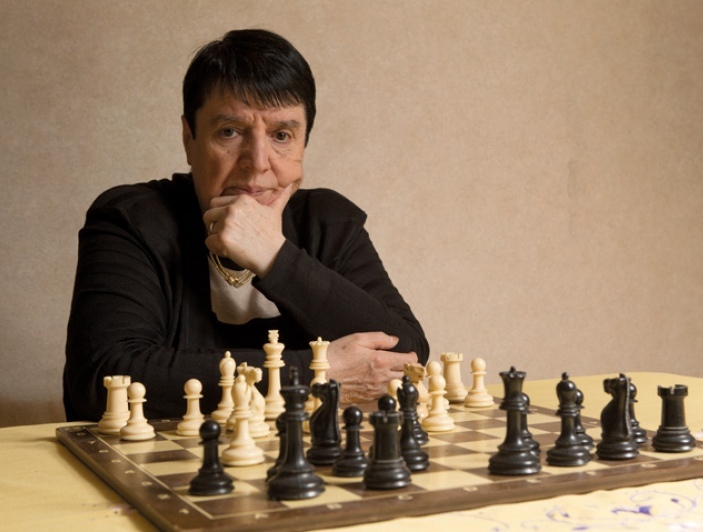 Photo: livepress.ge/
Photo: livepress.ge/
Nona Gaprindashvili (GEO), born in 1941 in Zugdidi (USSR, now Georgia), became the first woman to be awarded the title of International Grandmaster (1978). Her brothers introduced her to chess at the age of five and became her first opponents. After turning 12, she honed her skills under the tutelage of a talented coach, Vakhtang Karseladze, in Tbilisi. At just fifteen, Nona won the Tbilisi and Georgian Championships. Four years later, she emerged victorious from the 1961 Candidates Tournament in dominant fashion, earning a title match against Elisaveta Bykova.
Gaprindashvili seized the title from Bykova in a convincing manner (+7−0=4) and successfully defended it three times against Alla Kushnir (1965: +7-3=3; 1969: +6-2=5; 1972: +5-4=7) and once against Nana Alexandria (1975: +8-3=1). After fifteen years of reigning supreme, she lost the title match (Tbilisi, 1978) to another Georgian, 17-year-old star Maia Chiburdanidze (+2−4=9).
Even after conceding the title, Gaprindashvili remained one of the strongest female players in the world for another twenty years and amassed a very impressive tournament record. Nona is still very active in veteran tournaments, winning the World Senior Championship and European Senior Championship multiple times.
Yuri Balashov (RUS)
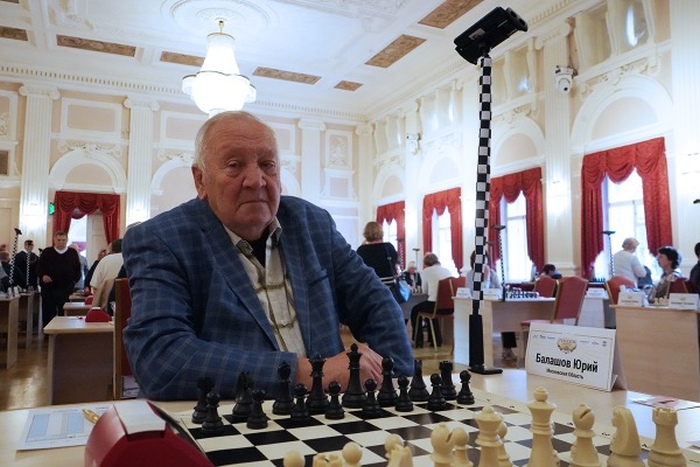 Photo: Eteri Kublashvili
Photo: Eteri Kublashvili
Yuri Balashov (RUS), born in 1949 in Shadrinsk, Russia, learned chess from his older brother Alexander. By the age of 15, he had become the youngest master in the country. Balashov was one of the first students of the renowned Mikhail Botvinnik’s chess school, where he gained valuable insights into chess training. His rise in the chess ranks was steady and consistent.
In 1970, Balashov won the Moscow championship for the first time and finished fourth in the USSR Championship. His most notable achievement came in 1976 when he finished runner-up to Karpov in the highly competitive USSR Championship, scoring an impressive 10.5/16 with a performance rating of 2773. He participated in 15 national championships throughout his career.
A participant in four inter-zonal tournaments, a winner of the 1980 Olympiad and several European Championships with the Soviet team, Balashov proved himself not only as a very strong GM but also a great trainer. He served as Karpov’s second in three World Championship matches (1978, 1981, and 1984). Calm, reserved, collected, and with extensive knowledge of opening theory, Balashov was an integral part of Karpov’s team.
Yuri Balashov has continued to excel in veteran events, winning the World Team and European Team Championships several times. In 2019, he tied for first place in the World Senior Championship but ultimately took bronze due to inferior tiebreaks.
Anatoly Vaisser (FRA)
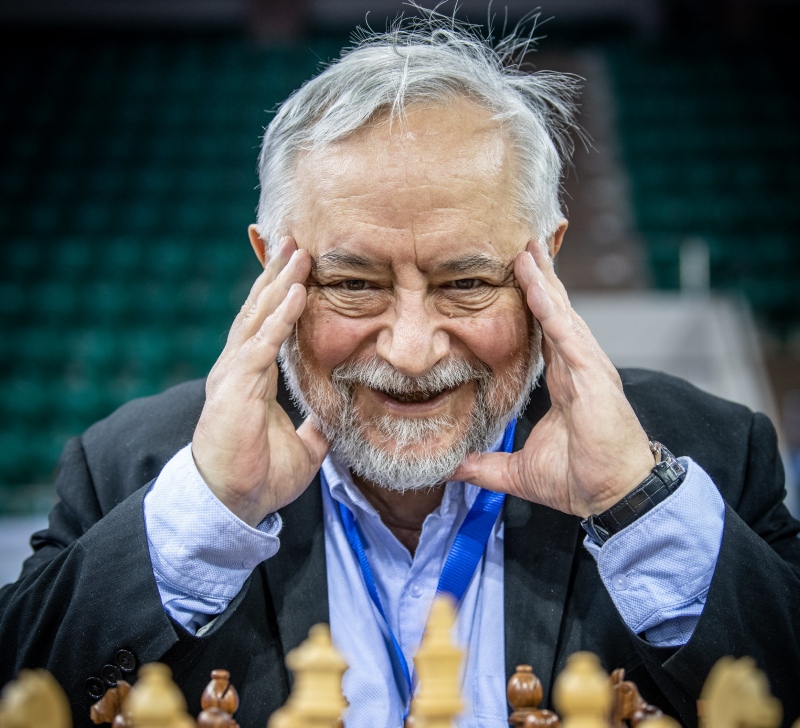 Photo: David Llada
Photo: David Llada
Anatoly Vaisser (FRA), born in 1949 in Almaty, Kazakhstan (then USSR), demonstrated talent in junior and student chess competitions. However, for a long time, he viewed chess simply as a game. Moreover, he even abandoned chess completely for three years while pursuing his Ph.D., later becoming one of the few GMs with a science degree.
After seconding Lev Psakhis at his victorious Soviet Championships in 1980 and 1981, Anatoly’a interest for chess rekindled and he took the game seriously. This hard work quickly paid off. In 1982, Vaisser won the RSFR championship, and in 1983, he completed his first GM norm in a tournament in Sochi. Two years later, Anatoly emerged as the winner of a strong tournament in Havana (1985) and became a Grandmaster.
Vaisser continued to achieve success in various competitions, notably finishing second-third with Viswanathan Anand at New Delhi in 1987 and second behind Vladimir Malaniuk at Budapest in 1989. He also tied for first place twice in the Cappelle-la-Grande Open: in 1987 with Anthony Kosten and Jonny Hector and in 1991 with Matthew Sadler.
In 1991, Vaisser moved to France and worked as a playing coach for the national team for several years. He won the French championship at Narbonne in 1997 and was twice runner-up (1996 and 2001). Anatoly played twice for France in the Chess Olympiads at Elista (1998) and Bled (2002).
Vaisser has an excellent record in veteran competitions, winning the World Senior Chess Championship in 2010, 2013, 2014 and 2016. Anatoly also authored a popular book, “Beating the King’s Indian and Benoni” (1997).
Marta Litinskaya (UKR)
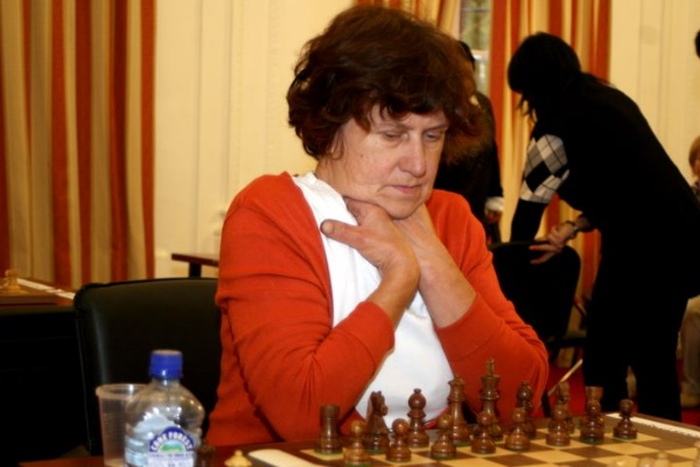
Marta Litinskaya (UKR), born Marta Shul in 1949 in Lviv, Ukraine (then USSR), learned chess at the age of ten thanks to her father. A year later, she joined a local chess club and became a student of the legendary chess specialist Viktor Kart. This marked the beginning of her successful career.
Litinskaya won the Ukrainian Women’s Championship in 1967 (she would claim the title again in 1977 and 1995). In 1968, she qualified for the USSR championship, where she achieved the rank of master. Five years later, she won the national title and went on to become runner-up in 1971, 1973, and 1974. In the early 1970s, Marta balanced her career as a programmer with professional chess, but eventually chose to dedicate herself fully to the game.
Litinskaya was awarded the FIDE titles of Woman International Master (WIM) in 1972 and Woman Grandmaster in 1976.
In 1973, Marta participated in the 2nd Interzonal Tournament in Menorca, tying for second place and qualifying for the Women’s Candidates Tournament. She lost a semifinal match to Nana Alexandria in Riga that year. In her second attempt to become World Champion, Litinskaya reached the semifinals again in 1980 but fell short against Alexandria once more in a closely contested match.
Later on, Litinskaya participated in two Women’s Candidates tournaments (Malmo, 1986 and Tskaltubo, 1987), finishing third on both occasions. Representing the USSR and Ukraine at the Chess Olympiads, Marta won two silver medals.
Over her extensive professional career, Marta Litinskaya achieved strong results in various tournaments. She secured victories and joint first-place finishes in Budapest (1975, 1979, and 1985), Dechin (1986), Belgrade (1987), and Almaty (1987). Litinskaya capped off her impressive career by winning the Women’s World Senior Championship in Naumburg 2002.
Edvins Kengis (LAT)
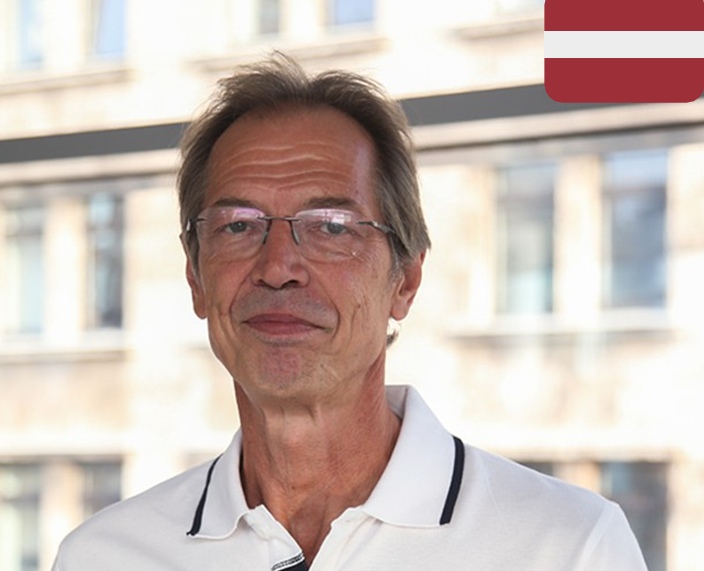
Edvins Kengis (LAT), born in 1959 in Cesic (Latvia), has enjoyed a long and successful career as both a player and a coach. One of the most promising players of his generation he was a part of the USSR national team, that won the World Student Championship in Mexico (1980).
Ķeņģis is an eight-time Latvian champion and a decorated player who represented Latvia in numerous prestigious events. He competed in six Chess Olympiads (1992–98, 2002–04), the 3rd World Chess Team Championship (1993), and the European Team Chess Championship (1997, 2001). He earned the International Master title in 1982 and the Grandmaster title in 1991.
Over his nearly 30-year playing career, Kengis emerged victorious in many international tournaments held across the globe, from Germany and Austria to Australia, USA, Poland, and Egypt.
Equally impressive is his success as a coach. From 1981 to 1986, he had the privilege of working with the legendary Mikhail Tal, the eighth World Champion. In the early 2000s, he nurtured the talents of future champions, including Ahmed Adly (World U20 Champion 2007) and Amin Bassem (the first African player to achieve an ELO rating above 2700) from Egypt.
Kengis’ coaching influence extended beyond individual players. In 2005, he worked with the Bangladesh men’s team. From 2006 to 2013, he served as the coach of the UAE national team, significantly contributing to the development of Salem AR Saleh (Asian continental champion in U14, U16, U18, and adult categories, and shared third place in the World U20 Championship 2010).
Upon returning to Latvia, Kengis became a FIDE Senior Coach in 2014 and served as the head coach of the Latvian Chess Federation from 2018 to 2019. Currently, he continues to share his knowledge and passion for chess as a self-employed private coach.
David Sedgwick (ENG)
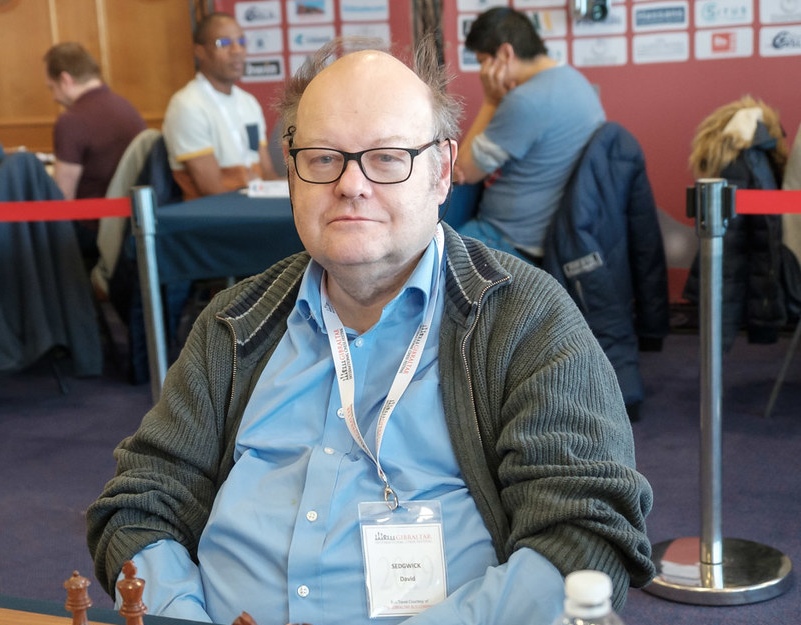 Photo: John Saunders
Photo: John Saunders
David Sedgwick was born on 5th May 1954 in Pinner, Middlesex, England. He was educated at Whitgift School, Croydon, and Queens’ College, Cambridge, and worked in investment management for thirteen years.
He has been a member of both the Insurance Chess Club and Mushrooms Chess Club since the late 1970s and has served both as Chairman. From 1993 to 1995, he was the President of the Southern Counties Chess Union, and from 1995 to 1999, he was the International Director of the British Chess Federation (BCF), now the English Chess Federation (ECF).
From 2007 to 2013 he was the ECF representative on the Sport and Recreation Alliance, a major UK umbrella body for sport, and in that capacity he contributed towards obtaining the inclusion of the Chess in Schools and Communities project in both the 2012 and the 2013 Community Sport and Recreation Awards.
He has over 35 years’ experience as a chess arbiter, both domestically and within the International Chess Federation (FIDE). He became a BCF Arbiter in 1986, a FIDE International Arbiter in 1994, and a BCF Senior Arbiter in 1997.
At the FIDE Congress in Turin in 2006, he was appointed as a member of the Arbiters’ Council (now the Arbiters’ Commission), and he served thereon until 2010. At the same Congress, he was appointed as one of the original members of the Approved List of Lecturers for FIDE Arbiters’ Seminars.
In the 1990s he helped in the administration of the first five World Amateur Championships at Hastings. In October 2004, he was the Chief Arbiter of the inaugural World Senior Team Championship held on the Isle of Man. He was an arbiter at the top section of the Open event at the Turin Olympiad in May and June 2006 and again at the Batumi Olympiad in September and October 2018.
From 2003 to 2015 inclusive he was a member of the arbiting team at all the first thirteen of the Gibtelecom and Tradewise Gibraltar Chess Festivals. He was the Deputy Arbiter of the London Chess Classic each year from its inception in 2009 until 2015.
From 2006 to 2015, he was the Chief Arbiter of the Guernsey International Chess Festival each October. In April 2015, he was the Chief Arbiter of the 4th European Small Nations Team Championship in Guernsey.
In February 2013 he was a player and a lecturer at the Gambian Chess Festival, which marked that country’s return to international chess after an absence of over 25 years. Following the Festival he was appointed as the Chief Arbiter of The Gambia Chess Federation in June 2013. That appointment was terminated in January 2020, but he was reappointed to the position in January 2022.
He reached the then pinnacle of his career as a chess arbiter when in March and April 2013 he was the Deputy Chief Arbiter of the FIDE Candidates Tournament in London, which determined the Challenger for the World Championship Match in November 2013. Following the Candidates Tournament he was appointed as a Category A International Arbiter.
In August 2015 he accepted an invitation to become the Chief Arbiter of the Grand Chess Tour, an annual series of tournaments featuring the world’s top players. The appointment became effective on 1st January 2016 and he was subsequently reappointed for 2017, 2018 and 2019. Owing to the Covid-19 pandemic the Tour did not take place in 2020, but on its resumption he was reappointed for 2021 and subsequently for 2022.
He relinquished the position in March 2023.
In May 2019 he was the Chief Arbiter for a Four Nation Team Tournament held in Côte d’Ivoire, alongside the first event of the Grand Chess Tour 2019.
In September 2019, he attended an International Arbiter Workshop held in Trieste, Italy, under the auspices of the European Chess Union Arbiters’ Council. He comfortably passed the examination test held at the end of the Workshop.
Following the onset of the Covid-19 pandemic, he qualified as an Online Arbiter of the European Chess Union in February 2021 and he successfully completed the FIDE Online / Hybrid Arbiter Advanced Course in July 2021. He thereby became only the second English arbiter to obtain both qualifications by examination.
In October 2021, he was the Local Chief Arbiter for England at the European Youth and Junior Championships 2021, which were held in Hybrid Format.
In the Mind Sport of Memory, he officiated at the World Memory Championships in London in November 2009, and he was appointed as a Level 1 Arbiter at the end of the Championships. He officiated at the UK Open Memory Championships in London in August 2012 and at the World Memory Championships in London in December 2012. In July 2013, he was the Chief Arbiter at the 1st Philippines National Memory Championships in Manila. In August 2013, he again officiated at the UK Open Memory Championships in London, and he was appointed as a Level 2 Arbiter at the end of the Championships. From 30th November to 2nd December 2013, he finally had the opportunity to officiate at a major event in his hometown, where the World Memory Championships were held in Croydon. In March 2016, he was appointed as a Level 3 Arbiter.
He was a founder member of the Guild of Mind Sports Arbiters in August 2016.

